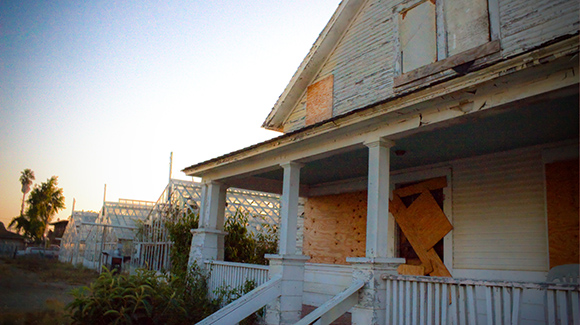
(Photo Credit: Orin Zebest/Flickr)
Originally published on TABB Forum
Like many less affluent cities, Richmond, California, has been dealing with a rash of blighted properties since the real estate meltdown. Although market prices in many areas have returned to their post-crash highs, some homes remain either abandoned or very poorly maintained by owners unable to meet mortgage payments – and thus facing foreclosure. After an unsuccessful attempt to deal with the problem through eminent domain, the city is now turning to social impact bonds to rehabilitate these homes.
In 2013, city leaders proposed an innovative but controversial initiative to attack blight: Investors in private label residential mortgage backed securities (RMBS) would be asked to sell some of their underwater mortgages to the city at a discount to the principal balance. If the investors were unwilling to sell (as they ultimately were), the city would work with a private company, Mortgage Resolution Partners (MRP), to take over the mortgages through the power of eminent domain and then refinance home owners into FHA loans with lower balances.
The plan, called Richmond CARES, met with widespread criticism, as well as litigation from banks and RMBS investors. One issue was the program’s poor targeting: Mortgages eligible for Richmond CARES had to be in RMBS pools and had to be either performing or only slightly delinquent. This universe included a lot of high-end properties near San Francisco Bay, but missed many of the most distressed homes in poorer neighborhoods. These highly distressed properties may have had government-backed mortgages or their private mortgages couldn’t be refinanced with FHA loans while, at the same time, leaving enough equity to cover the city’s costs and pay MRP’s $4,500 per-home fee.
Aside from being poorly targeted, the plan also had undesirable side effects, such as undermining the private mortgage market – since lenders would potentially have to price eminent domain risk in addition to default and prepayment risk. Although the City Council has not officially cancelled Richmond CARES, the initiative has not advanced for two years and MRP’s website is no longer active.
But now the city – in partnership with the not-for-profit Richmond Community Foundation – is pursuing a more promising strategy. Richmond is planning to issue $3 million of social impact bonds to purchase, rehabilitate and sell blighted properties. During a four-year revolving period, sale proceeds will mostly go to purchasing new properties; during the final year of the bonds’ five-year life, proceeds will be devoted to repaying principal and interest.
The purchase and rehabilitation program will be run by the Foundation. Initial targeted properties will include some of the 250 abandoned homes that have been taken over by the city – typically due to failure to pay property taxes. Local contractors will be hired to perform the rehabilitations – keeping the money in the community.
The rehabilitated homes will be offered to graduates of the Richmond SparkPoint Center. SparkPoint, an initiative of the United Way, helps area individuals and families dealing with financial crises. Center advisors help clients get out of debt, increase their income and build savings. Program graduates have a FICO score of 680, making them eligible for FHA mortgages.
Properties will be sold at market rate to avoid depressing nearby property values. But, as Joshua Genser, one of the program’s architects, pointed out to me, “market rate” in a poor area of Richmond is very affordable by the standards of the Bay Area. Single-family homes are likely to sell for around $250,000 – a small fraction of what one would expect to pay in nearby communities.
Although the bonds are issued by Richmond, they are not secured by city revenues. The sole source of funds for debt service will be proceeds from the sale of the rehabilitated properties. The bonds are intended for social impact investors less concerned with maximizing risk-adjusted returns than in using their capital for public benefit. The Richmond bonds are most likely to be sold via a private placement to a local bank endeavoring to meet its obligations under the Community Reinvestment Act.
If all goes well, the bonds will be fully repaid with up to 10 percent interest. Any extra proceeds will be retained by the Foundation. Due to the novelty of the program and the fact that it requires effective execution to be profitable, bond investors are taking on a significant risk of principal loss. Although the city has no legal responsibility to make investors whole, a default could affect investor attitudes toward other city debt – a major concern at the moment due to the recent downgrade of Richmond’s debt by Moody’s. For this reason, it may be better for future social impact bonds to be issued by joint powers authorities or other special purpose entities that do not have similar concerns over reputational risk.
But this is a minor concern over an idea that promises major social benefits. By targeting the most blighted properties, the bond program will improve quality of life and support property values in the neighborhoods that most desperately need this sort of help. The program also promises to improve the city’s budget picture by reducing code enforcement costs and eliminating property tax delinquencies.
It is also impressive to see a non-profit partnering with the city as well as private law firms and financial institutions – which have structured the transaction on a pro bono basis – to implement such an innovative concept. The Richmond bond is a great example of a fourth sector initiative, in which private for-profit companies, governments and non-profits team up to tackle stubborn social problems.
Marc Joffe is principal consultant of Public Sector Credit Solutions, an organization that produces data and analytics relevant to government bonds. Previously, Marc was a senior director at Moody’s Analytics.

